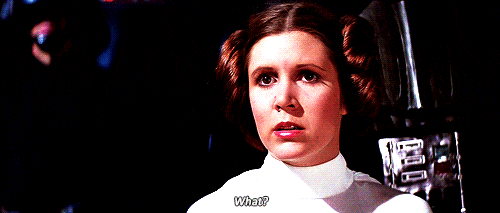Carrie Fisher was one of this nation’s most inspirational women. From teaching us that anger is something that would only hurt us in the end, to what it was like trying to stay sane in Hollywood. Most widely known as the bombshell Princess Leia, she of course was so much more than that golden bikini. Growing up in the spotlight next to her mother Debbie Reynolds, she rocketed to the top after Star Wars’ success. She wasn’t just a starlet, she was a behind the scenes guru as well. As a screen writer, she is well known as the author of When Harry Met Sally (1989), The Wedding Singer (1998), and Sister Act (1992), to name a few.
Why does all this success and lifestyle in the limelight matter? Despite her being candid with her inner demons, the kick butt Resistance Leader struggled with some of the most difficult mental disorders in the book.
Fisher was diagnosed with bipolar disorder in her 20s and suffered from both alcoholism and drug addiction. Some think it’s shocking: this well respected, accomplished film artist was dealing with what? Usually, and unfortunately, society has a habit of ostracizing those who are afflicted with problems such as these. According to the Depression and Bipolar Support Alliance, 18% of people believe that those who suffer from Bipolar Disorder “are not just like everyone else” and 29% believe that they will “not live normal lives when treated”; this was the consensus among “1,200 American adults”. In today’s society, we have made so many advancements in tolerance; yet there is so much more work that needs to be done. Naturally, this is something some would want to keep hidden under their caps. But not Carrie.
“She proved that even whip-smart, cool-as-hell, impossibly funny women can end up doing a stint or two in the psych ward.” Carrie kicked the door wide open on how we see mental health issues, especially when they concern women. Throughout history, women have been pegged as crazy or manic because of the archaic diagnosis women used to be labeled with: Hysteria. Hysteria symptoms included “nervousness, hallucinations, emotional outbursts and various urges of the sexual variety”; these definitions remained in the medical profession until the 1950s! Fisher made sure to let you know that, no matter what you are going through mentally, it’s who you are. As she said herself: "If you claim something, you can own it.”
Carrie’s work as an activist has encouraged others to seek help when they thought there was nowhere else to go. In her autobiography, Wishful Drinking, Carrie talks of her own experiences with her mental health and addiction problems. She encourages other people, women in particular, to confront their own mental health problems: "You can let it all fall down and feel defeated and hopeless and that you're done. Move through those feelings and meet me on the other side. As your bipolar sister, I'll be watching."
Now you know the crazy truth about the crazy lady in the golden bikini; let’s all try to be “very sane about how crazy” we are. We miss you.
Sincerely,
A Crazy Lady

























